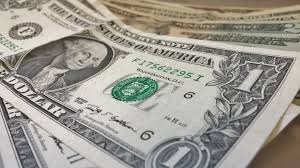
How to save money - The one tip that every Police Officer should know...
Ok...first things first. I'm BROKE! So if you think what you're about to read is some get rich quick scheme by some multi-millionaire accompanied by photos of my Lamborghinis, yachts, mansions and scantily clad women in the pools of said mansions...think again. But before we continue, let me define "broke."
To define "broke" you must start with your monthly expenditures. That's right. How much does it cost to run your life (comfortably) every month? And not just mortgage, car and groceries. I mean EVERYTHING. Even that $3.00 Starbucks latte and the $4.00 you give your kid when you drop them off at school. EVERYTHING! Saving money is so tough for most people because they truly don't know what their actual monthly expenses are.

Now, for the sake of easy math, let's say your number is $5,000 per month. We then multiply this number by 12 (for the 12 months of the year). In this case we, of course, come to $60,000. So, if the sky fell down tomorrow, you would need an absolute minimum of $60,000 per year to sustain your current quality of life. Right? Ok...now is when we figure out how broke you are. Let's do this!
A "modest" rate of return on your money is 4-5%. With little to no knowledge or help, the average person could invest a large sum of money and expect a rate of return of about 5%. And when I say "rate of return" all I mean is interest on your money. We calculate this on an annual basis (APR). So, for example, if you had $100,000 dollars in the "bank" (NOTE: it wouldn't be at a bank, it would be invested via an investment platform. But for the sake of this article, I'll say "bank") at an APR of 5% you would generate $5,000 dollars a year in interest. So after one year, you would have $105,000 in the bank. Make sense? Ok, good! NOTE: You always have to account for taxes and inflation but that's a whole other topic altogether. For now, let's just stick to the basics and keep this super simple.

So, now that we understand interest growth, we are one step closer to figuring out just how broke we really are. The next step is fairly straightforward but involves some more basic math. Therefore I'll form it as a word problem (I always liked word problems). And let's not forget, the number we determined we need to survive on annually is $60,000.
If $100,000 dollars invested safely at 5% generates $5,000 a year in interest for me, how much money do I need invested to generate $60,000 a year? Of course we're using $60,000 here because that's what we calculated it costs us to live comfortably for 1 year. So we take $60,000 and divide it by 0.05 and we get $1,200,000 ($1.2 million). What does this mean? It means that in order to generate $60,000 a year in interest (which would essentially cover all your bills every month) you would need to have $1.2 million invested and getting 5% interest. Still with me? Ok, good cause we're on the home stretch to discovering how broke we actually are.

Now that we've determined how much money we would need in the "bank" in order to generate $60,000 a year in interest, we must add up everything that we currently have in the bank and/or invested. This gives us our "current funds." We then take this number and subtract it from the number we NEED to have in the "bank" in order to generate the $60,000 a year we need to survive and life a good life.
Let's say we add up all the money that we have saved and invested and come up with, for the sake of easy math, $100,000. This would mean that we need an additional $1,100,000 ($1.1 million) in order to reach our "number" of $1.2 million. Makes sense? Good. Don't worry, $1.1 million "sounds" like a lot of money to save but it's really not if you're investing and using the power of compound interest...something else we'll get into later.

So now that we've determined that we are $1.1 million dollars short of the "number" we need to have invested in the "bank" we know our shortfall and how much work we have to do in order to NOT be broke. You see, once you get to the point where you have $1.2 million in the bank, if you played your cards right, you could quit your job and "technically" never work again.
Your $1.2 million making 5% interest would be kicking off a cool $60,000 annually which would cover all your expenses, right? Now...would you actually quit your job? Probably not. But, if you were to say lose your job for some reason, you'd be ok. Or if you got sick of being harassed by your boss, you could just walk in and quit. Imagine how nice that would be. THAT is the beauty of not being broke. THAT is the benefit of having that magic number in the bank making that interest that covers all your monthly bills and liabilities. THAT is not being broke. And until you get there, whether you want to believe it or not...YOU'RE BROKE!

So how does one get to the point at which they are not broke? Well, I'm not gonna lie...it's not easy. It's especially not easy for those making modest wages like police officers and teachers. However it IS possible. I personally know couples who don't make six-figure incomes that have over $1 million saved and invested. There are a few ways to close the gap quicker even if you aren't making some huge salary. One trick in particular will allow you to close this gap MUCH faster and it's the secret the wealthiest people in the world use to become even wealthier. That will be the basis of Part 2 of this series. Stay tuned because it's not what you may have heard from the "get rich quick" guy on TV at 2am.
Believe me, I was a cop for 13 years and started a business in my garage from scratch. That business is now headquartered in Times Square New York City. However the important knowledge I'll share with you in Part 2 of this series has nothing to do with me starting my business. It has everything to do with something I learned from a REALLY rich guy many years ago.
NOTE: Part 2 of this series will be available on demand via e-book. Email sales@221btactical.com for more information or visit www.221btactical.com

Suresh Madhavan (above center) is Founder and CEO of New York Based 221B Tactical, LLC. He spent 13 years as a full time police officer, during which time he acquired licenses and certifications to provide financial planning guidance to fellow police officers, first responders and their families. Suresh recognized that financial education was not taught in the police academy (or in our schools for that matter) and thus decided to take matters into his own hands. For years he offered FREE financial planning advice to co-workers and fellow first responders in the NY/NJ/PA areas. For questions or information, please email his team at sales@221btactical.com

Comments
Leave a comment